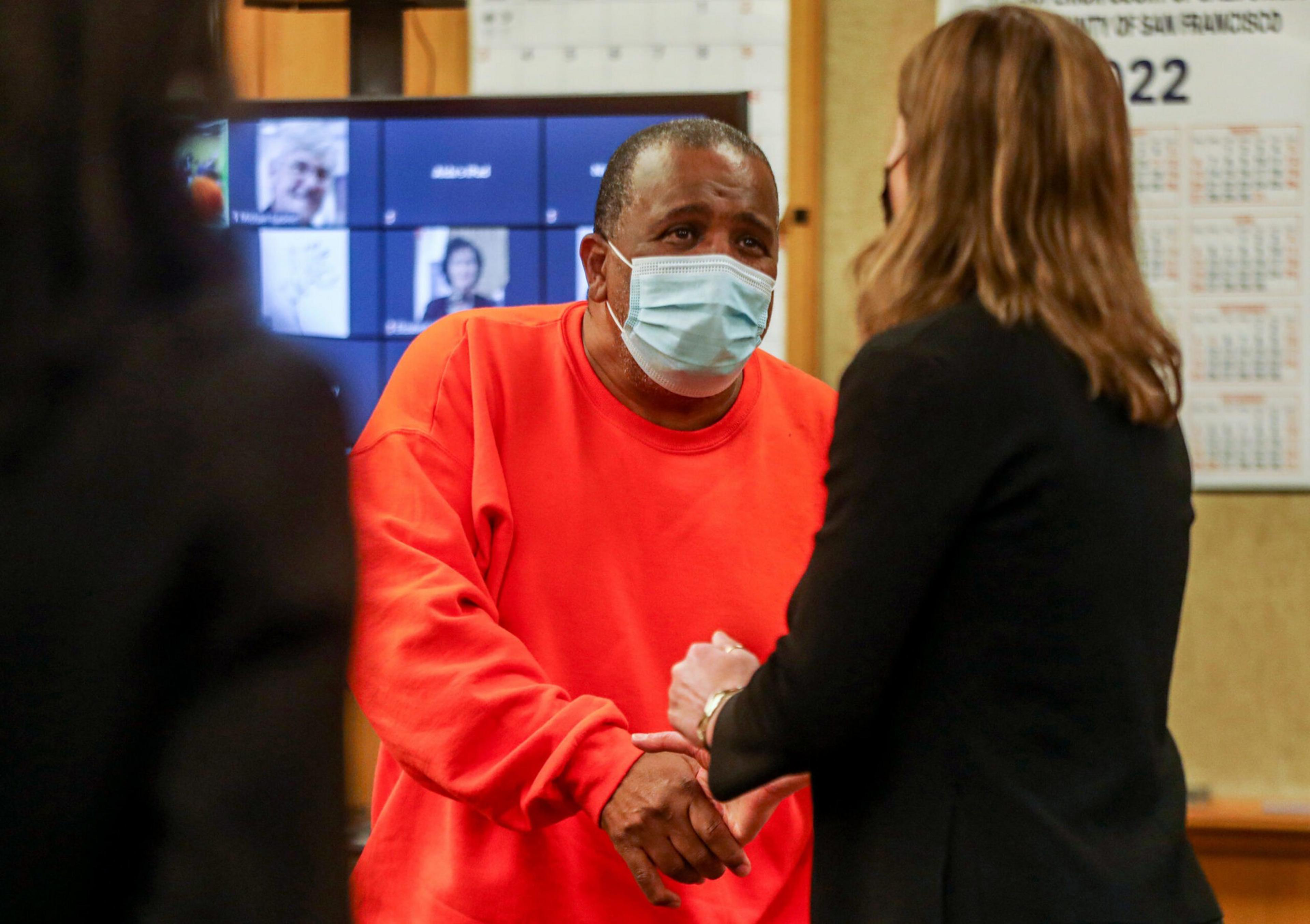A man freed after serving decades in prison for a murder he said he did not commit is suing San Francisco police for allegedly fabricating evidence against him.
Joaquin Ciria was convicted in 1991 of shooting and killing his friend Felix Bastarrica in a South of Market alley. He was released from prison this April after San Francisco Superior Court Judge Brendan Conroy vacated his conviction at the request of former District Attorney Chesa Boudin.
A review of Ciria’s case by the District Attorney’s Office Innocence Commission found that police relied on dodgy evidence that would not hold up in court today. That evidence included statements by a troubled youth during coercive police interrogation and dubious eyewitness identifications.
The court took another look at the case after the Northern California Innocence Project flagged it for evidentiary issues.
In a lawsuit filed in federal court Tuesday, Ciria claims the San Francisco Police Department concocted a plan to “pin the murder” on him while failing to “meaningfully investigate” the killing. He was 29 when police arrested him on April 19, 1990, and 61 years old by the time he walked out of prison.

The lawsuit says Ciria is bringing the case to hold SFPD accountable for its “coordinated, reprehensible conduct under the color of the law.
“As a result of the SFPD’s fabrication of evidence and relentless pursuit of Ciria despite obvious evidence of his innocence, Ciria was denied the freedom to make his own living and build the life he was entitled to,” the lawsuit reads.
Among the defendants named in the lawsuit are former SFPD homicide inspectors Arthur Gerrans and James Crowley, who allegedly coerced a key witness into implicating Ciria. The lawsuit also names a then-undercover officer, Nicholas J. Rubino, who was allegedly surveilling Ciria around the time of the killing and should have known he was innocent.
A spokesperson for the City Attorney’s Office, which represents SFPD in court, said only that it would “review the complaint and respond appropriately” once the defendants have been served.
